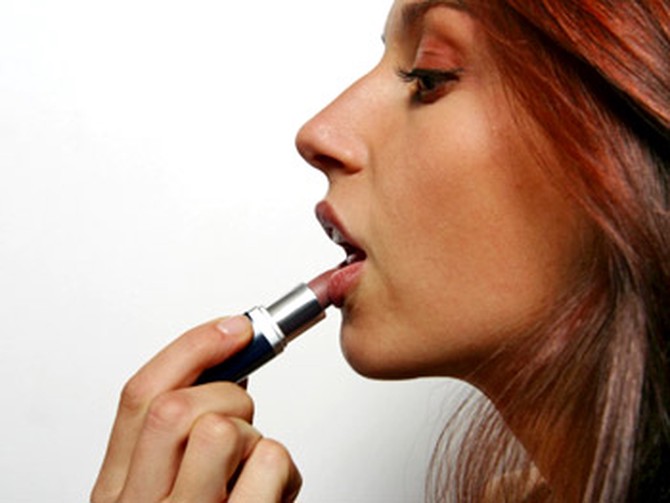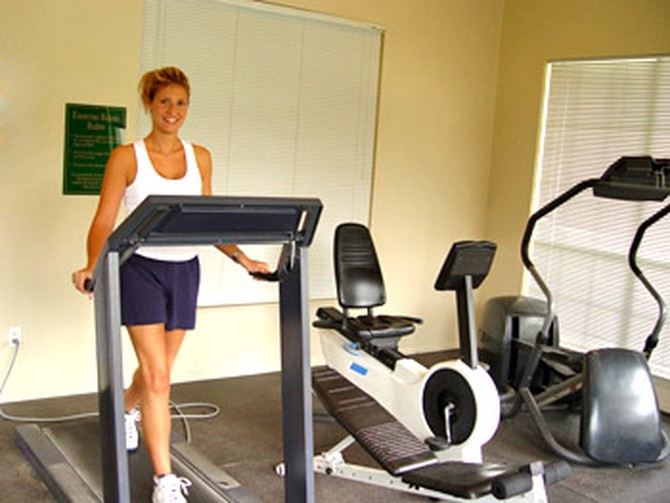Give Yourself a Makeover!

Too much makeup can make you look harsh—these easy makeup tips will help give you a soft, healthy glow!
- Moisturize religiously: Applying cream every morning makes skin look fresher even when you don't wear foundation—and helps it glide on smoothly when you do.
- Proceed carefully with powder: A soft dusting helps set makeup and absorb shine, but too much can settle into lines. Always use a brush rather than a puff for a lighter application.
- Blur the edges: Rimming your lids with an eye pencil will define the eyes and seem to plump lashes, but always smudge the line a bit afterward for a more flattering, soft-focus effect.
- Go light on lip color: Dark colors can look harsh and accentuate imperfections. A lip gloss—not too shiny—looks much fresher.
- Don't be afraid of shimmer: A dusting of shimmer shadow over the lids refracts light and brightens the eyes.

Moisturize religiously: Applying cream every morning makes skin look fresher even when you don't wear foundation—and helps it glide on smoothly when you do.
- Long Hair: If you're going to have long hair, then it should be layered. The layers will take off a significant amount of the weight, and layering hair around the face will open and broaden the face, making it look fresh and uplifted.
- Bobs: Here's a trick. If you have a bob, take it a couple inches shorter in the back, leaving the front longer. This will give your profile an instant lift. It also pulls the eye upward and away from the face.
- Layering: What is it? It's any time that the hair is not one length. Layering creates a soft, youthful feel.

Superfoods are the most life-extending, vitality-boosting foods. Blueberries help prevent heart disease, wrinkles and possibly memory loss. Broccoli defends against birth defects and breast, lung and gastrointestinal cancer. Yogurt aids digestion, alleviates allergy symptoms, and lowers cholesterol. Other superfoods include oranges, spinach, beans, pumpkin, walnuts, tea, oats, turkey breast, wild salmon, tomatoes and soy.
Make these 14 superfoods part of your daily diet. Chef Michel Nischan serves up eight dishes that help make this prescription a pleasure rather than a duty! Try his recipes:
Make these 14 superfoods part of your daily diet. Chef Michel Nischan serves up eight dishes that help make this prescription a pleasure rather than a duty! Try his recipes:

Take charge of your health! Dr. Mehmet Oz shares the ideal age when you should begin getting health tests for many serious health threats:
- Age 20: Cholesterol test
- Age 21: For women, gynecology exam and pap smear (get tested earlier if sexually active)
- Age 35: Blood sugar, anemia and thyroid exams
- Age 40: For women, mammogram (start at age 25 if you have had two female relatives with breast cancer). Also, for men and women, skin exam by partner (take pictures of moles) and baseline electrocardiogram (a test that records the electrical activity of the heart)
- Age 50: Colonoscopy (get one every five years). Also, for men, prostate test
- Ages 50–60: Exercise stress test or coronary CTA (if obese or diagnosed with type 2 diabetes)
- Ages 55–60: Thyroid-stimulating hormone blood test (used to detect problems affecting the thyroid gland); memory test (Tell a complex story and repeat key points or have someone tell you a phone number and see if you can remember it—if you can't pick it out of a list of numbers, this could be a sign of early Alzheimer's disease.)

Walking is a great choice of exercise, especially if you'd like to lose
weight. You can perform it outside when the weather is nice, making for a very
pleasant workout, or on a treadmill during inclement weather and have the
advantage of being able to control the grade to gradually make your workout more
challenging. You can use a pedometer to monitor your progress as they have
become very sophisticated in recent years.
Guidelines for Starting a Walking Program:
Guidelines for Starting a Walking Program:
- Walk a minimum of five times a week.
- Select the duration of your walking sessions based on the number of minutes that you can continuously walk (between 10 and 30 minutes).
- Walk at an intensity whereby you can speak but your breathing is noticeably elevated.
- Try to increase your walking time by at least two minutes each week.
Published 01/01/2006

